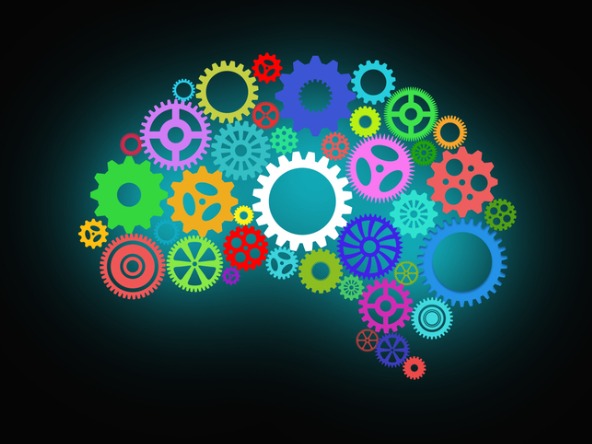Addressing insights skills gaps in an AI world

Marketing has always been a numbers game, and disruption in the sector is accelerating as the need for brands to get closer to customers with relevant and timely information about their products and services becomes more important.
As you would expect, technology is at the forefront of this change. Terms such as artificial intelligence (AI) and machine learning (ML) are commonplace within marketing departments as migration towards assistive technologies continues to gather momentum.
Yet the growth of big data analytics – forecast to increase at an annual growth rate of almost 30% to more than $40bn in the next few years by Frost & Sullivan – is contributing to an increased demand for data science skills.
According to the recruiter Hayes, data science was one of the six most in demand jobs in 2021, resulting in a skills gap. The research sector has arguably experienced slower disruption than other marketing disciplines, yet it remains a critical component of discovering uncommon insights that will help brands to engage in more relevant ways.
A lesson from history?
Some view big data platforms as the holy grail that will miraculously deliver valuable insights capable of driving new product innovation, campaigns and personalised marketing programmes. All this with the aim of giving brands a competitive edge to grow faster and become more successful than their competitors.
Throughout history, particularly during the industrial revolution of the 19th century, technology gradually replaced manual labour. Aggrieved artisans understandably viewed such ‘progress’ with hostility, as unemployment rose, inferior goods were manufactured and capitalists shared in the profits of workers’ labour.
Fast forward to the 21st century, and while we haven’t yet experienced the rise of the machines, it could be argued that there are similarities between such historical events and the impact AI and ML as the future of work evolves. Industries such as manufacturing, retail, service delivery, financial services and recruitment have allowed intelligent systems to displace human jobs, particularly those that involve routine and repetitive tasks, and those that are more complex such as roles involving speech recognition, writing and complex mathematical processes. As machines take over, the skills gap widens.
Data quality
Innovative technologies are breathing new life into the research industry, helping brands to discover relevant and real-time insights, while helping marketers identify future consumer trends. However, as the industry marches towards becoming fully automated, the quality of such insights data must be assessed for its true value.
There is intense pressure for brands to better understand their customers in this post-pandemic world. The data industry has never had so much technology, types and sources of data, speed of information, analytic routines and processing power to address the insights gap. But questions remain. Are they sufficient to close the skills gap, and help researchers understand their customers and their markets? Will automated technologies eventually replace human researchers? Or, due to the unique differences between machine and human intelligence, do we require both?
There’s a plethora of automated platforms and tools powered by AI and ML now readily available for market researchers. These are useful for processing lower-level routine and repetitive tasks, operating more quickly, efficiently and accurately without ever tiring. Such technology is proving extremely valuable. It has lowered prices, increased the availability of information and helped to significantly increase targeting when used in conjunction with adverts, special offers and service interventions.
Cheap data v authentic intelligence
Let’s look at the bigger picture. The global pandemic has shaken a kaleidoscope of cultural trends, resulting in some profound developments. How consumers now pay for things is a simple example, but perhaps a more significant one is the expectation on brands to step up to help solve some of the world’s problems.
Examples include big pharmaceutical brands and the advancement of Covid-19 vaccines, particularly AstraZeneca and its development of a low-cost, accessible alternative to mRNA; the speed of withdrawal of western brands from Russia; the response to last year’s Black Lives Matter demonstrations with the implementation of diversity, equity and inclusion (DEI) programmes. These are examples of environmental, social and governance (ESG) actions being lived by brands in a way that was non-existent five to 10 years ago.
Technology developments within the research industry are proving invaluable but in very narrow ways. They are causing rapid market convergence which makes new services hard for users to differentiate. There isn’t enough general, or human, intelligence being applied within the industry capable of addressing some of these bigger issues.
In today’s world, brands need more than just fast, cheap data that is available to all. To build clear differentiation, we rely on people; people with creative and analytic skills that can anticipate and adapt to rapidly changing situations, and deliver human insights tailored towards individual brands. General intelligence, or ‘authentic’ intelligence, still belongs to the world of humans and is more important than ever if we are to close the skills gap in an AI world.
Tim Wragg is global chief executive at Hall & Partners.

We hope you enjoyed this article.
Research Live is published by MRS.
The Market Research Society (MRS) exists to promote and protect the research sector, showcasing how research delivers impact for businesses and government.
Members of MRS enjoy many benefits including tailoured policy guidance, discounts on training and conferences, and access to member-only content.
For example, there's an archive of winning case studies from over a decade of MRS Awards.
Find out more about the benefits of joining MRS here.













0 Comments